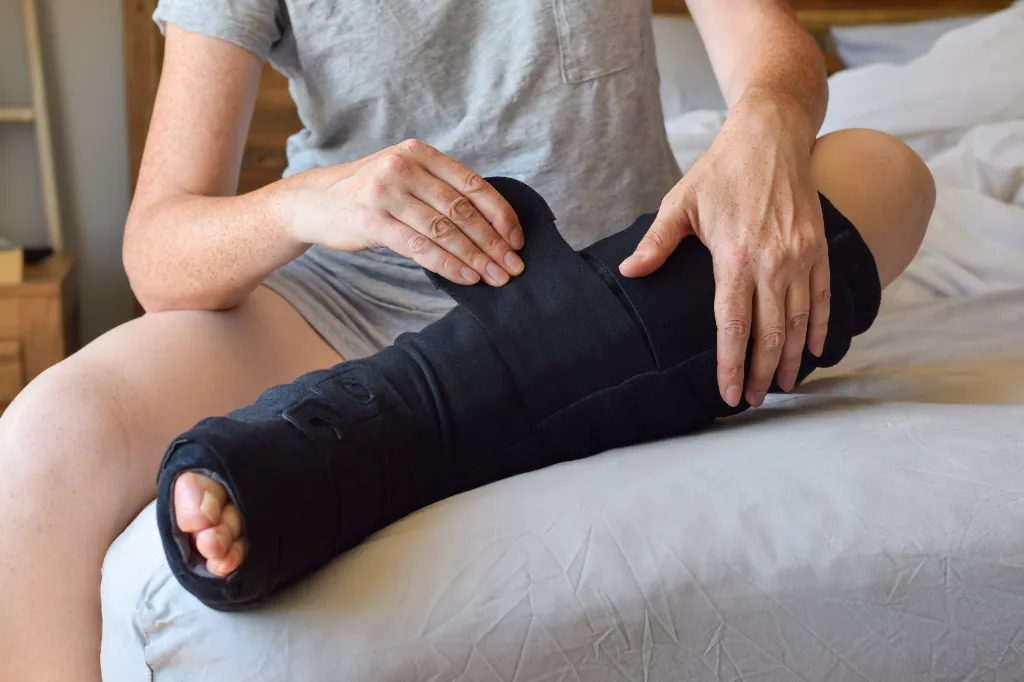Key Takeaways
- Follow prescribed guidelines for rest, medication, and therapy to aid successful recovery at home.
- Maintain a safe environment with proper wound care, medication adherence, and physical therapy exercises.
- Ensure a nutritious diet, safe living space, and prompt communication with healthcare providers for accelerated recovery.
- Seek community services for social support, deeper breathing exercises, and blood pressure regulation to enhance post-surgery healing.
The Post Surgery Recovery Process
The post-surgery recovery process plays a crucial role in ensuring well-being and quality of life. It involves following a prescribed rest regimen, medication, and therapy to aid the body’s healing.
Understanding and adhering to these recovery guidelines is essential for smooth and successful healing at home.
Recovering at Home
After surgery, maintaining a comfortable and safe environment at home is crucial for a smooth recovery process. Following after-surgery recovery guidelines is essential to ensure well-being.
Adhering to therapeutic schedules helps manage discomfort levels, aiding in a more comfortable recovery. Engaging in recommended physical therapy exercises promotes mobility and strengthens the body. In addition, proper wound care is necessary to prevent infections and aid in the healing process.

Ensuring a clean and organised living space can help prevent accidents and promote relaxation, and family support with daily tasks can significantly contribute to the patient’s recovery journey. By prioritising these aspects of recovery, individuals can enhance their healing process and regain their strength efficiently at home.
Tips to Accelerate Post-Surgery Recovery at Home
When looking to speed up after-surgery recovery at home, individuals should:
- Strictly adhere to their doctor’s instructions.
- Ensure their living environment is safe for recovery.
- Diligently monitor any wounds for signs of complications.
- Maintain a nutritious diet to further support the body’s natural healing processes.
By following these key tips, support systems can help minimise the risk of infections, promote healing, and enhance overall recovery progress.
Follow Doctor’s Orders
Following the doctor’s orders is crucial for accelerating after-surgery recovery at home. Adhering to the prescribed physical therapy and medication schedule is essential to aid in the healing after leaving the intensive care unit. Doctors provide specific instructions tailored to individual surgeries to ensure the best possible outcome. By following these plans, care recipients can heal faster and minimise the risk of complications.
People recovering should promptly communicate any concerns or changes in their condition to their healthcare provider. Adhering to the doctor’s orders is a fundamental aspect of post-surgery care that significantly contributes to a smooth and speedy recovery.
Make Your Home Safe
Ensuring a safe home environment is paramount for expediting the recovery after surgery. The speed and success of recovery depend on creating a space that minimises risks and promotes healing.
Keeping the home clean and free from clutter reduces the chances of accidents that could exacerbate pain or cause a delay in recovery. Simple modifications like installing grab bars in bathrooms and removing loose rugs can make a significant difference. It’s also crucial to follow the advice of healthcare professionals regarding home safety measures and ask for support.
Monitor Any Incisions and Wounds
To enhance post-surgery well-being at home, individuals should monitor incisions and wounds for signs of infection or complications. Keeping a close eye promotes comfort and ensures timely intervention if any issues arise.
Individuals should follow specific instructions provided by their healthcare provider regarding wound care and dressing changes. Proper body positioning, as advised in the recovery room, can also aid in preventing unnecessary strain on the incision sites.
If there are any concerns about the healing process, individuals should promptly seek medical attention to address any potential complications.
Reduce Risks of Infections
To reduce the risks of infections and accelerate recovery at home, people should maintain proper hygiene practices. Keeping incisions clean and dry is essential to prevent infection after a surgical procedure. It’s crucial to follow the specific instructions on caring for wounds to reduce risks and promote healing.
Care recipients should wash their hands before and after tending to wounds to minimise the spread of bacteria or infection. Changing dressings as advised and monitoring for signs of infection, such as increased redness, swelling, or discharge, can help catch issues early. By taking proactive steps to prevent infections, patients recovering from surgery can promote healing and improve quality of life.
Maintain a Healthy Diet
A balanced and nutrient-rich diet plays a crucial role in accelerating after-surgery recovery at home. Consuming a healthy diet can help stimulate circulation, prevent complications, and provide the necessary nutrients for healing.
To enhance recovery, individuals should focus on incorporating foods rich in vitamins, minerals, and proteins. Fresh fruits and vegetables, lean proteins, whole grains, and healthy fats are essential components of a post-surgery diet. It’s also important to stay hydrated by drinking plenty of water.
Light-moving exercises can complement a healthy diet by improving blood flow and promoting faster healing, but a doctor should recommend this and provide a plan. Overall, prioritising a nutritious diet can significantly contribute to a smoother and quicker recovery at home.
Take Care of Mental Health
Taking care of mental health during after-surgery recovery is crucial for promoting overall well-being and faster healing. Emotional well-being plays a significant role in the recovery journey, as anxiety and depression can hinder progress. It’s essential for individuals to address any negative emotions they may be experiencing post-surgery.

Building a strong support system of family and friends can enhance the patient’s comfort and encouragement during this challenging time. Engaging in activities that promote relaxation and mindfulness, such as meditation or gentle exercise, can also help alleviate stress and improve mental health.
Consider Home Care Services
Home care services can greatly accelerate after-surgery recovery at home by providing essential support and assistance during healing. These services can ensure a smooth recovery by assisting with daily tasks, prescribed pain medication plans, wound care, and transportation to follow-up appointments.
Having a professional caregiver present can offer peace of mind and help prevent complications. However, discussing specific needs with the home care provider is crucial to tailor the assistance effectively to the individual’s recovery plan.
After Surgery Care with Unique Community Services
After surgery care with Unique Community Services offers a comprehensive and humanised approach to recovery. The journey to full recovery extends far beyond a hospital stay, which is why we provide a range of services designed to support people every step of the way.
Our approach combines medical expertise with personalised support, focusing on physical healing and mental and emotional well-being. Whether recovering from orthopaedic surgery, cardiac surgery, or other medical interventions, our multidisciplinary team works closely with each individual to develop a personalised care plan that addresses their unique challenges and goals.
If you’re ready to experience person-centred care and support, contact us today via phone or email.
You can also contact one of our offices in Manchester, Bristol or Leeds to learn more about our services and schedule a consultation with one of our experienced healthcare professionals.














